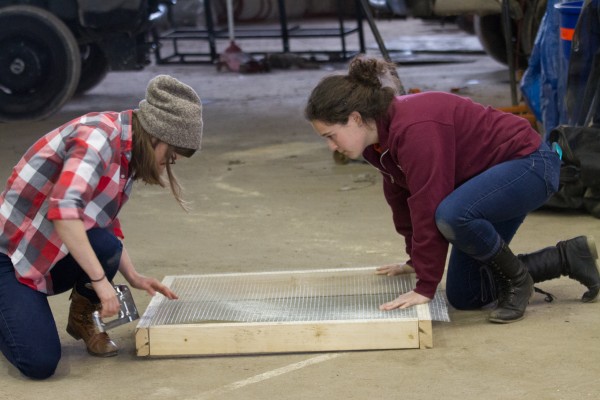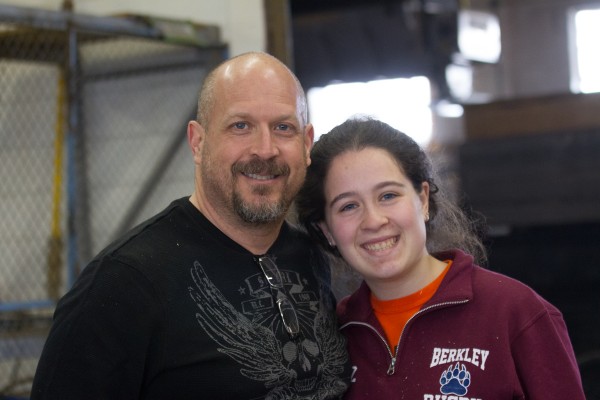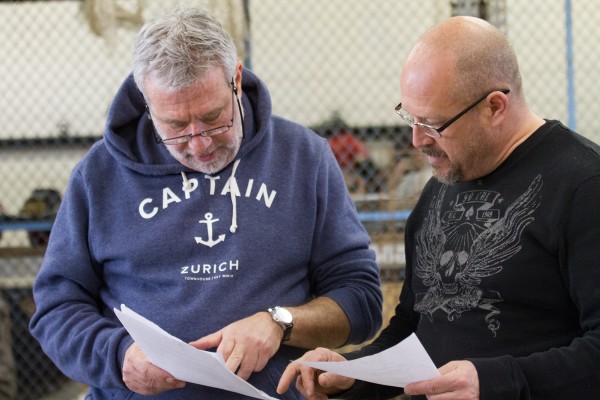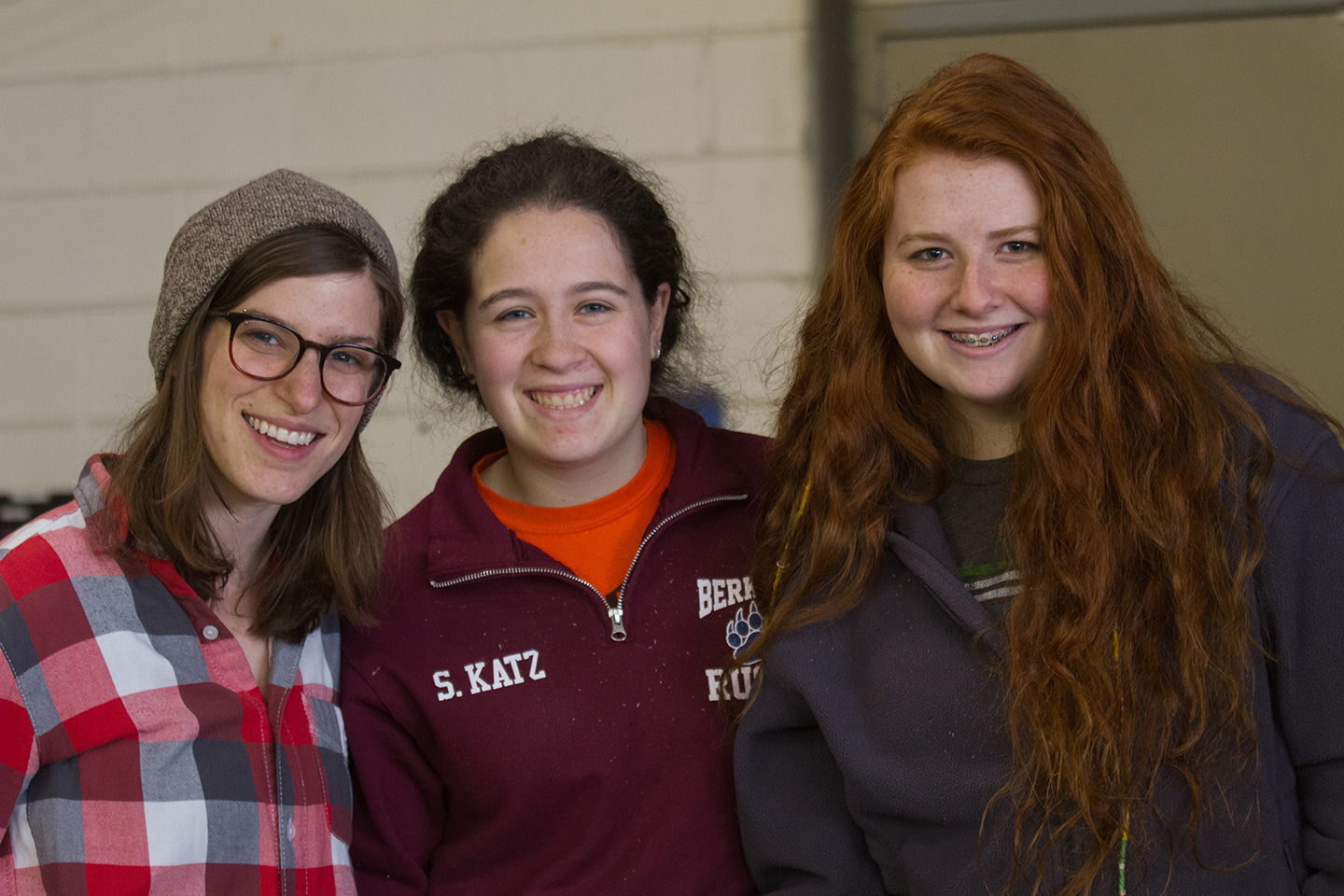Traditionally, Jewish Religious School has an intellectual focus. Focusing exclusively on the intellectual, however, can leave students a step removed from their individual interests and their personal Jewish journey.
For most young adult students at any given Jewish congregational school, attendance is reluctant and, for some, it’s downright involuntary. “My parents are making me,” or “So I can put it on my college application,” or “So I can get confirmed, whatever that means,” are common responses to the question “Why are you here?” Very seldom do students arrive with the eagerness for learning that comes from actually wanting to be there.
Getting down to earth
At Temple Emanu-El, Rabbi Arturo Kalfus enlisted Director of Congregational Learning, Sue Salinger, and Youth Director, Carly Sugar, to build a new post-B’nai Mitzvah curriculum – from the ground up. Through a Jewish lens, students have spent the year examining societal systems which have created vast injustices worldwide. Learning to ask tough questions while struggling with the discomfort of how these systems benefit or oppress them, the group has become more aware and concerned about the issues around common resources- clean water, clean air, sustainable energy, healthy food, the accessibility of these resources for all – issues that are ultimately of environmental and social concern to everyone. Moreover, they have explored ways to take action.
“It’s been a great experience learning about these issues…along with the potential that we have to make a change,” said 11th Grader Samantha Katz.

Finding a practical solution
On a cool and rainy Sunday in April, students of Temple Emanu-El’s Young Adult Program gathered at Great Lakes Landscape Design, in Oak Park, to build a compost system for the Temple as their final project for the year. A student-conceived and student-led project, the three-bin system will serve to convert food, paper and yard waste into “black gold” to enrich the Temple garden, while standing as a model for the community to practice the mitzvah of becoming Shomrei Adamah – guardians of the Earth.
The concept of composting for the congregation grew from the unit of study on Adamah (Earth), where students explored their local food system, its unsustainable techniques, and greener alternatives. When Ty Petrie, an expert on compost in Detroit, joined the class to share his knowledge, the students decided to approach the Temple’s Board of Directors to propose building a compost system on Temple Emanu-El’s grounds.
“If we don’t do this, no one will,” remarked 11th Grader, Sam Hurwitz.
Taking ownership, taking charge
From start to finish, the class organized and directed the process of their compost project. Students chose their roles and responsibilities, each according to their interest in research, curriculum development, design and building and project organization. Sarah Finegood, 11th Grade student and President of Temple Emanu-El’s NFTY chapter, presented the class proposal to the Temple’s Board of Directors. The Board’s approval was all the positive feedback the students needed to spark their excitement and confidence to move the project forward.

“Seeing these students take complete ownership of a project, from conception to execution, and watching them learn from a place of individual purpose has been remarkable,” said Carly Sugar. “Learning happens here through letting students take some measure of control of their own learning process, and they are inspired.”
A visit to the Detroit trash incinerator with EMEAC (East Michigan Environmental Action Council) was another influential experience. Students were surprised to learn that the country’s largest solid waste incinerator is in Detroit. EMEAC representatives and youth discussed with our students how the incinerator negatively impacts our environment and the health of residents living nearby.
Stepping out of the classroom, into the world
This youth-led compost initiative is just one example of how to build skills and knowledge through hands-on work, which contributes to feelings of empowerment and ownership, and creates deeper participation and engagement. This year, students have explored Jewish issues of sustainability in a four-world’s model: earth (body), water (emotion), fire (intellect) and air (spirit/imagination). From visiting experts teaching seminar-style, to exploratory trips into Detroit’s communities working for change, to direct hands-on projects, this year’s students are active in a whole new way for Temple Emanu-El.

“We introduced students to as many contemplative practices as time allowed this year,” said Director of Congregational Learning Sue Salinger. “We see that our over-scheduled, performance-driven students need a release, a skill set that can allow them to rest in the midst of their high-speed, always-on lives. Jewish meditation, attention to Kavannot (intention) in daily life, and art as a practice of self-awareness building are all part of what an engaged Judaic curriculum can offer.”
Temple Emanu-El’s Young Adult Program hasn’t cracked the code on engaging this overscheduled and over-stressed post-Bar Mitzvah set. They are making strides, however, by incorporating student-led project-based-learning activities, guest speakers and facilitators, and contemplative and experiential learning modalities.
In a world burdened with problems of overwhelming speed, Temple Emanu-El’s Religious School looks not only to ancient Jewish wisdom, but also to its students’ interpretations of it. This group of students is helping the Emanu-El community learn the meaning and action behind our favorite Hebrew phrase: tikkun olam.




